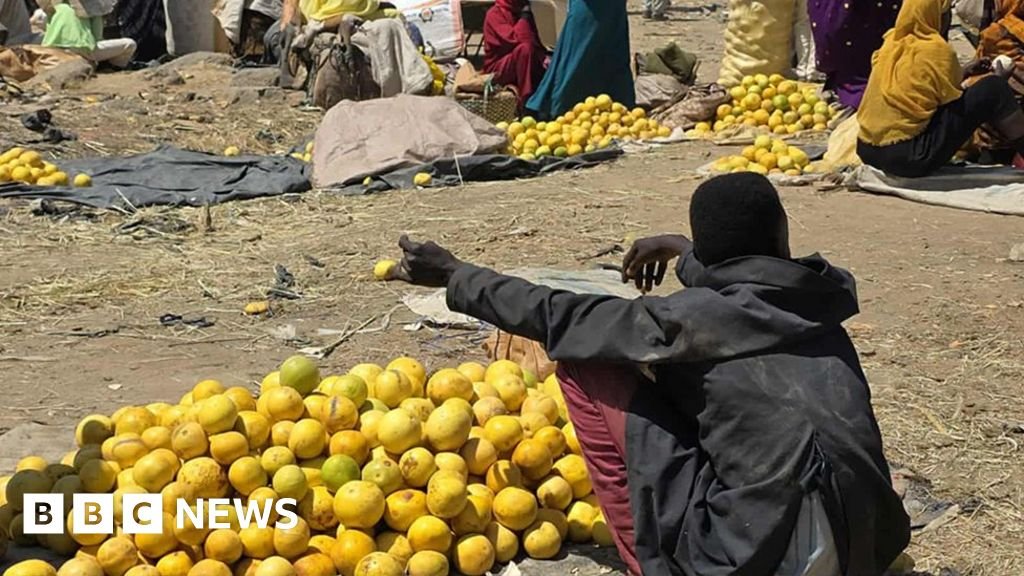
Fertile Jebel Mara region where food rots in conflict
Zainab Mohammad SalihHit Jebel

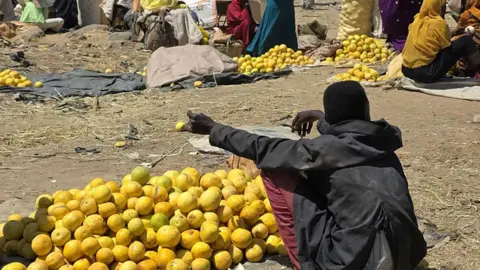 BBC
BBCSudan is a place where it is almost possible to forget that a devastating civil war is raging.
Wrapped in bright colors and wearing plastic sandals, the women of the country’s Jebel Mara mountains set out every morning on donkeys and children to tend the fields.
Taking advantage of the Mediterranean climate and fertile soil, they grow peanuts, oranges, apples and strawberries – rare crops for a country now facing one of the world’s worst hunger crises. Before the conflict, Jebel Mara’s organic oranges were especially prized throughout the country for their juiciness.
The mountainous areas of this part of West Darfur region are dotted with green peaks, especially now that it is the rainy season.
The rest of Sudan is on the brink of disaster.
Across the country, two-and-a-half years of fighting has crippled agriculture, with nearly 25 million people – half the population – facing acute food shortages, including more than 600,000 who are facing famine, according to the UN.
But in the verdant highlands of Jebel Mara, the problem isn’t growing the food – it’s getting the produce out.
“We sell them almost for free and sometimes we get rid of them on the way (to the market), because they rot,” says Hafiz Ali, an orange seller in Golo, a town in the middle of the mountains in central Darfur state.
The insecurity and deplorable condition of the roads make transportation almost impossible.

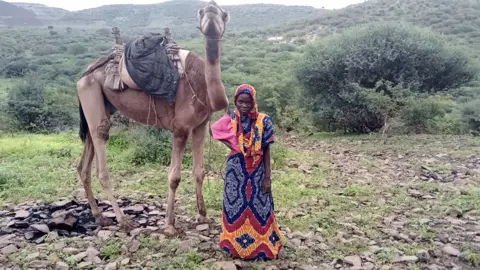 Zainab Mohammad Salih
Zainab Mohammad SalihJebel Mara is the last remaining territory controlled by the Sudan Liberation Army – Abdulwahid (SLA-AW). This armed group has remained neutral in the current war. A peace deal has never been signed with the authorities in Khartoum going back to 2003 and the conflict on Darfur at the time.
The SLA-AW has controlled what it describes as local “free zones” for more than two decades.
Now surrounded by war on all sides, this region is becoming more and more isolated.
In the west and north, the Rapid Support Force (RSF) and allied Arab militias block major roads. In the south, RSF positions are bombed almost weekly by the Sudanese army – these attacks also claim civilian lives.
The RSF also controls areas in the east.
The result is a closed environment where farmers and middlemen can no longer reach the national markets in the towns of El-Fasher, 130km (82 miles) away, or Tine, on the Chadian border, 275km (170 miles) away.
There are other options but none have the same national reach and all involve treacherous journeys.
Tawila, on the very edge of the SLA-AW region, has become a temporary market place. It is on the street of el-Fashar, which has been cut off by the RSF’s siege and has become home to thousands of people who have managed to flee the city.
Due to difficulty in moving production, the market is oversupplied and as a result prices here have fallen.
Here are some who are looking to buy supplies to try and smuggle products into El-Fasher – a very dangerous and deadly trade.
So far getting the goods has always been a challenge and sometimes the food rots along the way.
“To travel about 12 km, you need a full day to drive through the mountains and mud,” says Yusif, a fruit seller in Tawila. But now, he says, insecurity makes things worse.
In Central Darfur, a recent ceasefire between leaders of the Fur ethnic group – dominant here – and Arab nomads has allowed limited trade in some areas.
Markets have reopened in the SLA-AW-controlled city of Nertiti, where Arab women sell sour milk and fur farmers bring fruit and vegetables. But the system is fragile.
“The market opens only once a week. Travel is still dangerous,” says a trader in Nertiti.
Even after the deal, armed robberies still happen on the streets.
Fruit and crops can now be sold at markets in RSF-controlled Zalingei, the capital of Central Darfur state. But Arab militias allied with the RSF are frequently accused of torturing or attacking civilians in the area, although the group denies any wrongdoing.
Every Thursday, which is a market day, the number of checkpoints between Nertti and Zalingei increases, sometimes reaching more than two dozen. But with more vehicles on the road on market days, more people take the opportunity to travel.
Checkpoints, some manned by RSF soldiers and some by Arab militias, are sometimes manned by just one armed man in plain clothes, who demands a fee. Drivers often try to negotiate as passengers watch silently.

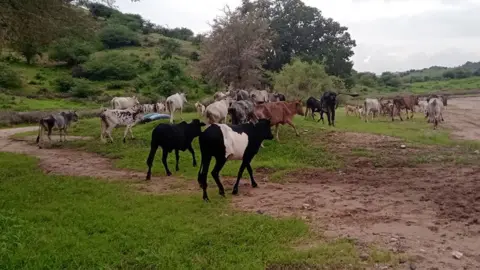 Zainab Mohammad Salih
Zainab Mohammad SalihBack in the Jebel Mara region, SLA-AW checkpoints guard every road in the mountains and armed men also demand money.
Bags are checked with skin-bleaching creams widely used elsewhere in Sudan.
Despite the relative calm once in the SLA-AW controlled areas, there are clear signs of conflict elsewhere in the country.
Lorries full of people fleeing the fighting can be seen daily, especially around El-Fashar.
Many of them seek refuge in schools, hospitals and other public places that do not receive humanitarian assistance – aid agencies struggle to get through all the checkpoints.
In Golo, a woman who escaped from el-Fasher, the de facto capital of SLA-AW territory, described dire conditions. She is now sheltering in a classroom with 25 newly arrived families.
“We have no income. No job, I used to work as a nurse and I can farm, but the land here belongs to people who work only for themselves. We don’t know what to do,” said the woman.
As she spoke, sick, old people were lying on the ground and children were crying out in hunger. At least you will get some relief as you will get food that cannot be taken out of the golo.
This is the Jebel Mara region, a strange world surrounded by war. A world of green hills and waterfalls. A world of bright, juicy fruit. A world of frightened refugees.
A fruit trader said he had lost hope from both parties.
“We are not part of the war – we just want to sell our oranges.”
More on the war in Sudan:

 Getty Images/BBC
Getty Images/BBC










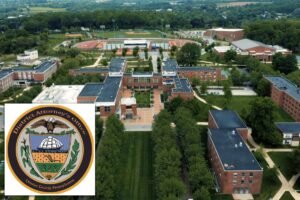
Post Comment